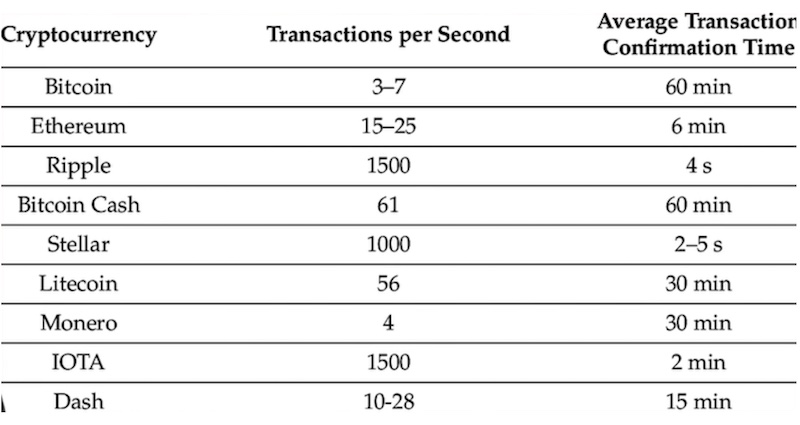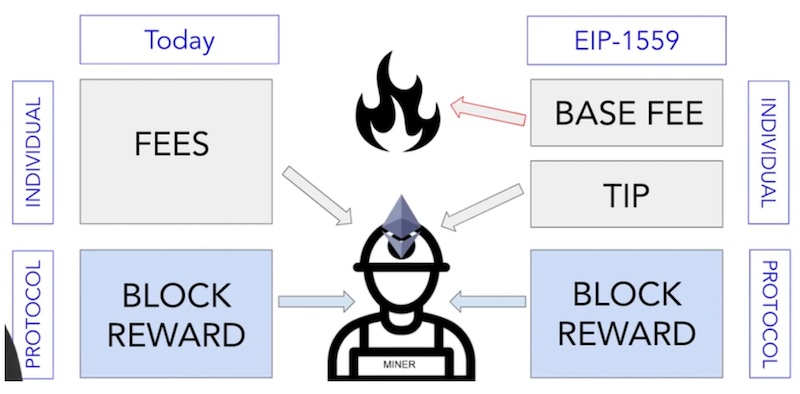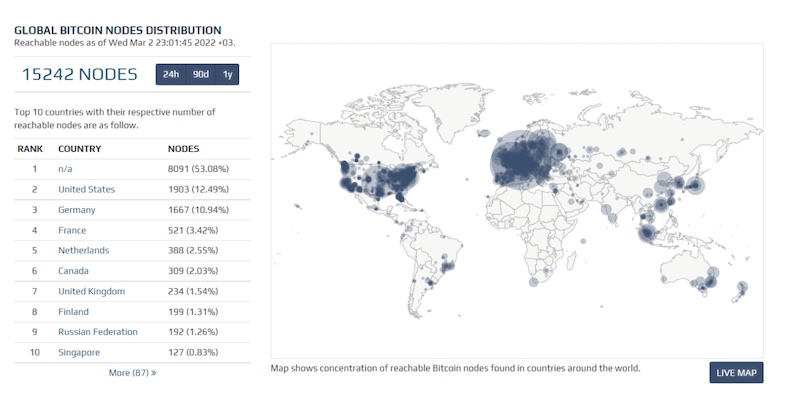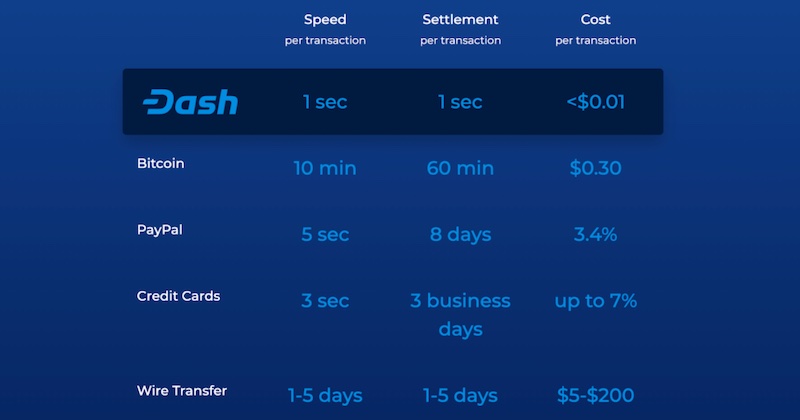On Ethereum, exorbitant crypto transaction fees drove regular users to seek alternatives. These high costs also spawned a new sector within the blockchain industry - layer-2 solutions.
This article will help determine which crypto has the lowest transaction fees. But before we explore this, let's look at the different types of crypto transaction fees, how they work, and why projects need them in the first place.
Are you new to crypto? If so, check out the Crypto for Beginners course at Moralis Academy!
Types of Crypto Transaction Fees
When considering which crypto has the lowest transaction fees, we need to look at different types such as blockchain transaction fees (network fees), exchange fees, and wallet fees.
Transaction Fees in Blockchain
First, cryptocurrencies use blockchains to store and track transactions. Second, a blockchain is a distributed database divided into chunks of data called blocks. Lastly, a network of computers called nodes holds the blockchain data. Furthermore, miners and validators mine and validate blocks of transactions. They are incentivized in the following ways:

1. Block Rewards
Whenever miners add a block of transactions to the blockchain, they earn a block reward in the native cryptocurrency.
2. Transaction Fees
The second way to incentivize validation is by distributing transaction fees amongst those who validate the network.
Since there's limited space, roughly 2,800 Bitcoin transactions can fit in each block. When over 2,800 transactions wait for a Bitcoin block, users with pending transactions can attach additional fees to incentivize the miner to pick their trade before others.
Thus, a small-scale bidding war unfolds where those paying the highest transaction fees get their transaction into the next block. Further, crypto transaction fees rise and fall depending on how many transactions are trying to get on a block at any given time.
Notably, there were no transaction fees in the early history of Bitcoin because there weren't enough users competing for block space. Bitcoin has gone from average transaction fees of $60 in April 2021 to approximately $1.65. That's because crypto has been in a slump lately. But don't worry if you're concerned about the current downtrend! Please read our blog article about how to survive a bear market for more information. Also, learn more about Bitcoin by taking the Blockchain & Bitcoin Fundamentals course at Moralis Academy.

Smart Contract Crypto Transaction Fees
Cryptocurrencies such as Bitcoin use the transaction fee structure. But for smart contract cryptos like Ethereum, it's a bit different. The main difference is that those transaction costs are not optional. That's because smart contracts require more computational power than the standard transaction.
On Ethereum, this computation is measured in units called "gas." Instead of block size limits, Ethereum limits how much gas can fit into each block. At present, the gas limit is around 30 million units per block. With a gas limit of 30 million per block, approximately 1,400 regular transfers can fit into a single Ethereum block.
Consider the gas limit per block to be the maximum amount of computation Ethereum miners can process in a single block. Thus, the fees on Ethereum and other smart contract cryptocurrencies pay for computation rather than block space.
Moreover, different types of transactions will demand various levels of computation. Therefore, various kinds of transactions will charge varying amounts of gas.

So, the gas limit per block refers to the max amount of computation that can fit into one block. On the other hand, the gas limit for transactions references the minimum amount of computation miners need to process the transaction. The Ethereum "yellow paper" is where to look for gas limits for different types of transactions.
The Ukraine war is all over the news. What reporters don't talk about enough, however, is how refugees preserve their savings by moving cash into crypto. If you'd like to expand your knowledge in regards to this, be sure to read our article about Ukraine and cryptocurrency to find out more.
Ethereum Fees
If you're wondering why gas fees on Ethereum are so high, it's because tokens on its blockchain rely on smart contracts that make any complex transactions costly to compute.
On a positive note, with the downturn in the crypto markets, Ethereum's gas fees are the lowest they've been in a long time. The average ETH transaction costs about $12 for the past month. So, if you've left some crypto on your exchange because it's not worth the fees it costs to send to your wallet, now might be a good time to re-examine that transfer.

Exchange Fees
Centralized exchanges (CEXs) can charge exorbitant fees for transacting, especially when withdrawing. On the other hand, decentralized exchanges (DEXs) can also command high rates, especially for more complex swaps. Nevertheless, keep an eye on the up-and-coming DEXs as they push for lower crypto transaction fees. It will force CEXs to compete on price.
Crypto Wallet Fees
For crypto wallets such as MetaMask, the gas limit references the computation required. Furthermore, the gas price is the amount of ETH the user is willing to pay measured in "gwei". In the case of smart contract cryptos, depending on the complexity of the transaction and the currency, increasing the gas limit won't raise a user's chance that a miner will select their trade. That's because any overpayment in gas gets refunded to the user anyway.
However, with MetaMask, the user can increase the maximum priority fee to get a miner to complete the transaction quicker.
Can Cryptocurrencies Stay Safe Without Transaction Fees?
When searching for which crypto has the lowest transaction fees, one question comes to mind, "why do we have to pay these costs?". Are transaction fees just another way for projects to fleece their regular users? Not exactly. Yes, projects need capital to fund their operations, but transaction fees exist for other reasons.
Users pay transaction fees for transferring coins from one account to another. So, if users move their tokens from one wallet to a different wallet or from a crypto exchange to a wallet, they will have to pay for the transfer.
So, while crypto transaction fees provide revenue for the platform used, these costs also enable other services such as security.

Theoretically, if a cryptocurrency doesn't charge for transacting, a bad actor could spam the network with more transactions than the validators can handle. A DDoS attack plagued Solana in December 2021 and demonstrated how zero or meager crypto transaction fees could threaten network security. That's why Bitcoin charged a minimum transaction fee of 0.01 BTC early on, even when there weren't enough users to warrant it.
But, some platforms don't charge transaction fees. Polkadot is one example. Its "parachains" plug into the primary blockchain for security. Gavin Wood (Polkadot's founder) explained that parachains don't need transaction fees though most choose to do so because it adds value to the token.
Nano, IOTA, and Osmosis don't charge fees. Moreover, Ronin offers some free transactions each day. So, when searching for which crypto has the lowest transaction fees, the number zero is an excellent place to start!
Why Do Cryptocurrencies Have Transaction Fees?
1. Security
Regarding cryptos that use smart contracts (such as Ethereum), remember that there are limits to how much the blockchain can compute per block. Gas exists because smart contracts using Ethereum Virtual Machine (EVM) could hit some severe snags without it.
For example, a bad actor could generate a smart contract with the never-ending demand for computational power. Such actions could theoretically gobble up a portion of computing power in each block in perpetuity. So, gas fees must pay for computation and place a parameter on smart contracts that stop the calculation when the gas runs out.
2. Economic Incentives
Transaction fees can be rewarding for miners and validators. Such incentives encourage more miners and validators to join and secure the blockchain.
3. Sustainability
Lastly, specific cryptocurrencies such as BTC, BNB, and MATIC have caps on their supply. The maximum number of Bitcoin that miners can ever produce is 21 million. Hence, there will come a day when transaction fees will remain the sole economic incentive for the project's survival after the last coin is mined.
Gaming on the blockchain is a smoking hot sector. Learn about the top gaming tokens in our recent article on the Moralis Academy blog.

How to Reduce Fees
Here are some quick tips to help keep transaction fees low:
1. Timing
Nearly all cryptocurrencies have high-traffic periods. So, if you're trying to figure out which crypto has the lowest transaction fees, remember that they're usually the priciest during peak business hours in the U.S.
2. Alternatives
Look for cryptocurrencies that leverage the EVM for smart contracts. These chains will often have the same tokens you'll want to send on the Ethereum blockchain but charge less in transaction fees.
Thus, reducing gas fees might be as easy as switching to different chains. Remember that new chains are not as battle-tested, so proceed with caution.
Layer-2 scaling solutions for Ethereum and the Lightning Network for Bitcoin are also becoming viable options. Further, more cryptocurrency exchanges offer native support for layer-2, so these options will become easier to use over time.
Finding out which crypto has the lowest transaction fees can feel like a dismal task. Especially on Ethereum with all the upcoming dapps, yield farming activities, and NFT speculation jamming the network traffic. Not to mention the arbitrage bots that work tirelessly around the clock. More significant usage can only mean higher fees.
However, there is hope with layer-2 solutions becoming more accessible and the final phases of Ethereum 2.0 and sharding coming to completion.
Crypto founders set up decentralized autonomous organizations (DAOs) to offer community governance over their projects. Do you want to learn how to create a DAO? Follow the link to learn more.
Which Crypto Has the Lowest Transaction Fees?
Now, let's look at some specific cryptocurrencies and their respective transaction costs. Bitcoin's transaction fees remain low, averaging around $1.65 over the past month. But again, once the market heats up, the average BTC transaction can balloon back up to the $60 range.
Ethereum has averaged between $8.5 to $13 over the past month. Even so, popular DEXs on Ethereum can still charge upwards of $30 for complicated swaps.
Cardano's transactions are less expensive because there's no intensive computation necessary to move them around. Nonetheless, if demand grows on Cardano, so will its transaction fees.
The privacy coin, Monero, has minuscule transaction fees, costing a couple of pennies to send XMR. Also, MATIC is in a similar price range except for complex transactions that will cost more.
Along with MATIC, Avalanche and Fantom have also become worthy alternatives to Ethereum due to high fees. A simple AVAX or FANT send costs less than a penny. Similarly, Solana and Algorand's basic transactions cost only fractions of a penny. Even complex transactions go for only a few cents.
Ripple and Stellar can have lower fees. This result seems natural since the pair has similar histories and is more centralized. Sending XRP and XLM costs less than a penny, provided the user holds a minimum balance which isn't much.

Popular Coins with Low Fees
This list is not definitive because costs can fluctuate based on the previously mentioned computation and space demands. Nonetheless, BitInfoCharts compiles a list of some of the more popular cryptocurrencies and their associated fees. Here is the last month's data:
1. Bitcoin Gold (BTG)
Avg. Transaction Fee: $0.0012
2. Ripple (XRP)
Avg. Transaction Fee: $0.0022
3. Ethereum Classic (ETC)
Avg. Transaction Fee: $0.0028
4. Bitcoin Cash (BCH)
Avg. Transaction Fee: $0.0044
5. Dash (DASH)
Avg. Transaction Fee: $0.005
6. Litecoin (LTC)
Avg. Transaction Fee: $0.016
7. Dogecoin (DOGE)
Avg. Transaction Fee: $0.017
8. Monero (XMR)
Avg. Transaction Fee: $0.024

Which Crypto Has the Lowest Transaction Fees? - Summary
Newbies already find cryptocurrencies complex. So the last thing they need is to get hammered on the fees. Naturally, cryptos with the lowest costs will be desirable, but there are many other factors to consider. Thus, be sure to read the blog articles at Moralis Academy to stay up to date.
Better yet, start your lucrative career as a blockchain developer by joining Moralis Academy today!




